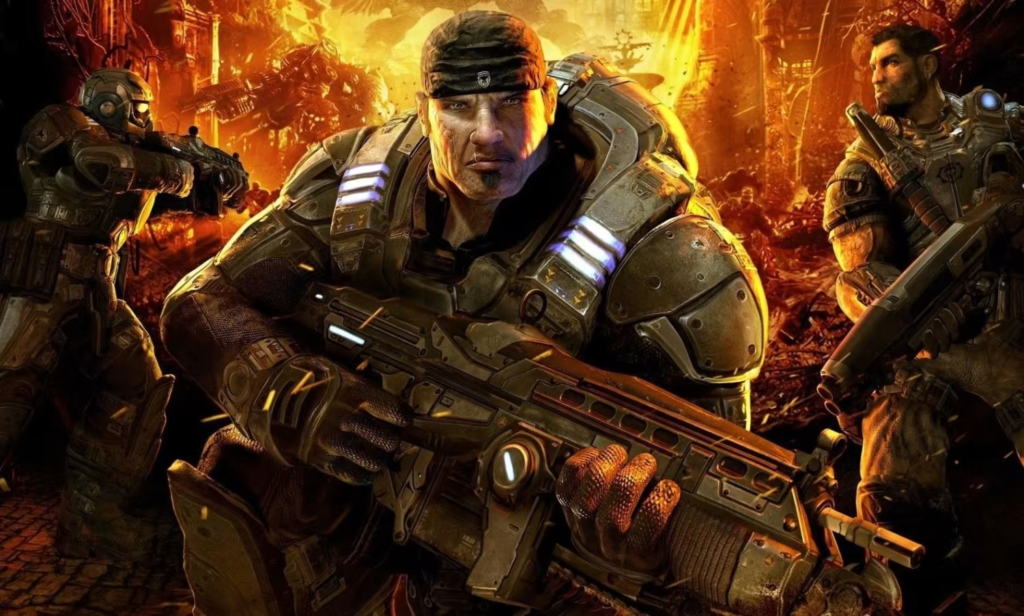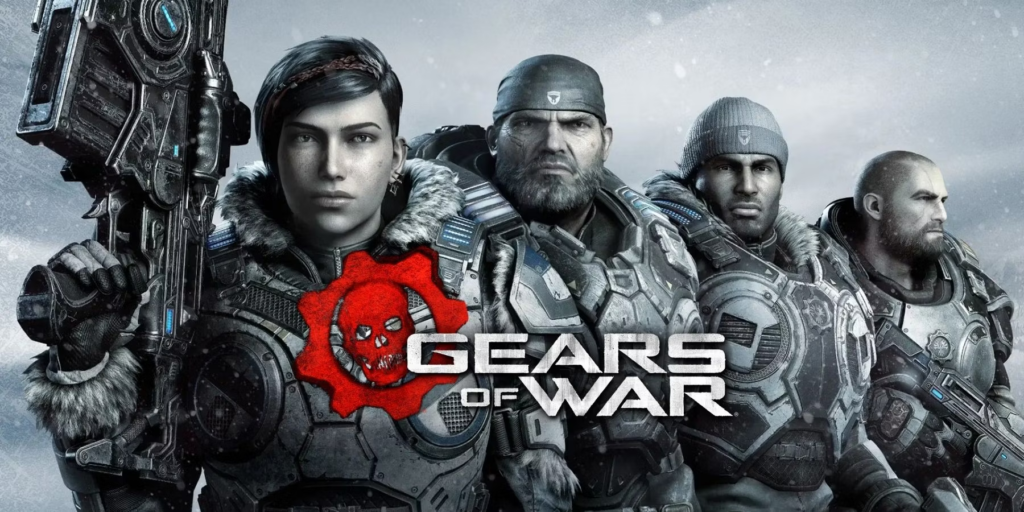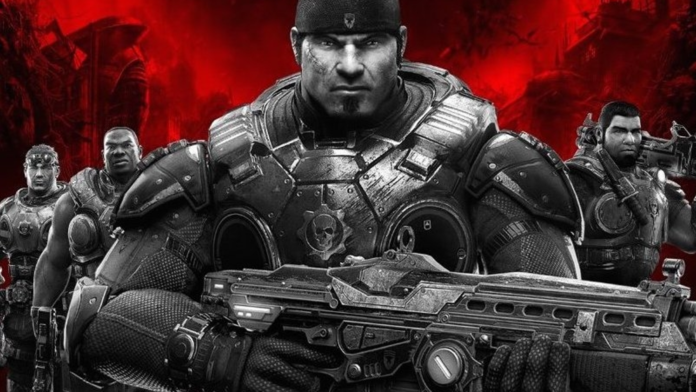The Gears of War franchise, once a revered cornerstone of the gaming world, has had an interesting journey in recent years. From its inception as a revolutionary third-person shooter to the divisive reception of the latest installments, Gears of War has seen its fair share of ups and downs. Come join us and we will take a deep dive into what happened to Gears of War, exploring the rise, fall, and potential resurgence of this iconic series.

The Rise of Gears of War
Gears of War burst onto the gaming scene in 2006, with the release of the first installment developed by Epic Games. This game was a revelation, setting new standards for third-person shooters. The combination of visceral, cover-based combat, intense action sequences, and an intriguing narrative made it an instant hit. Gamers couldn’t get enough of the gritty, post-apocalyptic world and the unforgettable characters like Marcus Fenix and Dom Santiago.
The franchise’s popularity continued to soar with Gears of War 2 and Gears of War 3, both of which expanded on the series’ lore and refined the gameplay. These titles introduced new game modes, unforgettable set pieces, and emotional story arcs that left players on the edge of their seats. It seemed that Gears of War could do no wrong, and fans eagerly anticipated each new installment.

The Fall: Gears of War Judgment and the Shift in Direction
However, no franchise can maintain its peak indefinitely. Gears of War’s decline began with the release of Gears of War: Judgment in 2013. Developed by People Can Fly and Epic Games, this prequel to the original trilogy failed to capture the essence of the series. It felt like a departure from the core Gears experience, and many fans were left disappointed by the lackluster campaign and multiplayer.
The decline continued with the release of Gears of War 4 in 2016, developed by The Coalition. While the game was not a disaster by any means, it failed to recapture the magic of the original trilogy. The new cast of characters lacked the depth and charisma of the original heroes, and the story felt disconnected from the events of the earlier games.
The divisive Gears 5 followed in 2019, with some praising its more open-world design and character development, while others criticized it for straying too far from the series’ roots. While the gameplay remained solid, the once-unified fanbase was now divided over the direction of the franchise.

The Impact of Microtransactions and Live Services
One key factor contributing to the mixed reception of the newer Gears of War titles is the industry-wide trend toward microtransactions and live services. The introduction of loot boxes and in-game purchases in Gears of War 4 and Gears 5 left a bitter taste in the mouths of many fans. The series that was once known for its quality and value was now tainted by the perception of greed.
Many players felt that these microtransactions disrupted the balance of the game, allowing those willing to spend more money to gain an unfair advantage. The shift towards live services also meant that resources were often diverted to creating new cosmetic items and events rather than focusing on delivering a polished and complete gaming experience.

The Future of Gears of War
Despite its recent struggles, Gears of War may still have a bright future. Microsoft’s acquisition of Bethesda and its parent company, ZeniMax Media, has the potential to rejuvenate the franchise. The Coalition, the studio responsible for Gears of War, has shown a commitment to learning from past mistakes and improving the series.
The upcoming Gears of War 6, scheduled for 2026 holds promise as an opportunity to address the concerns of fans and return to the series’ roots. A return to the emotional storytelling and intense combat that made the franchise famous, combined with a reevaluation of microtransactions and live services, could be the key to rekindling the love of longtime fans.

The Gears of War franchise has undoubtedly seen its fair share of challenges in recent years. From the pinnacle of success in the original trilogy to the divisive reception of more recent titles, the series has had to adapt to changing industry trends and audience expectations. While the road has been rocky, there is still hope that Gears of War can reclaim its throne as a beloved gaming icon. With Gears of War 6 on the horizon, fans eagerly await the next chapter in Marcus Fenix’s epic journey, hoping for a return to the glory days that made Gears of War a household name in the gaming world. Only time will tell if the chainsaw bayonet can once again rev up the engines of this beloved franchise.

